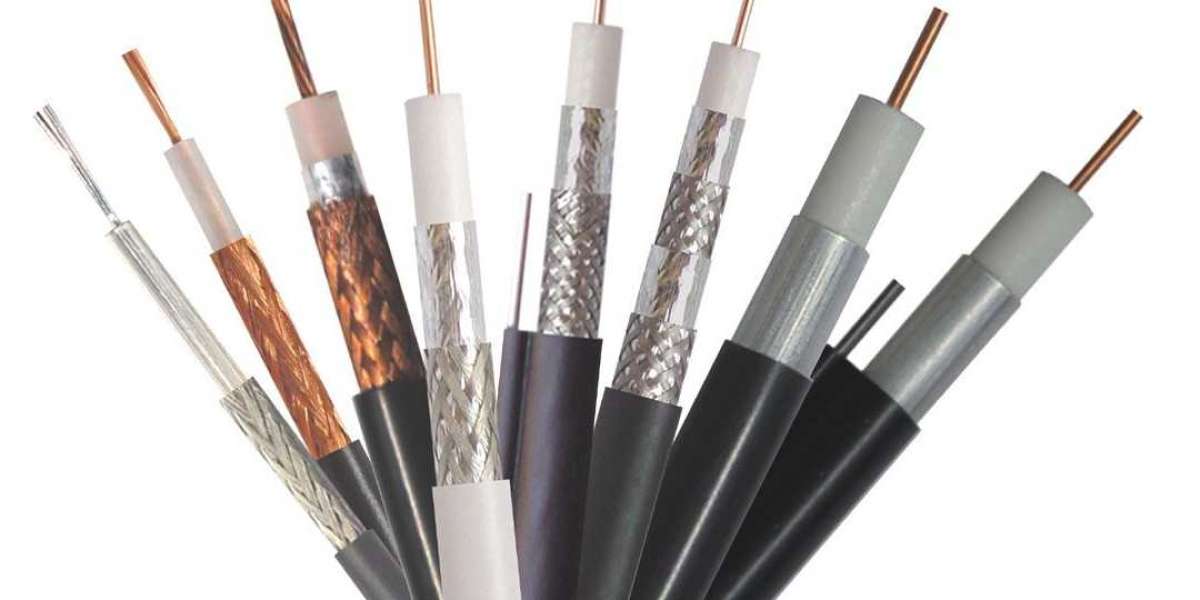Copper-clad steel composites are currently mainly used in products with high mechanical strength requirements and relatively low electrical conductivity requirements. The following are several applications of copper-clad steel composites.
Copper-Clad Steel Composites Are Used In Coaxial Cables
The application of copper-clad steel in coaxial cables is mainly based on the "Skin Effect", which means that the higher the frequency of the transmitted signal, the smaller the depth of signal penetration into the outer surface of the inner conductor. For copper conductors, the formula for skinning depth is given in the formula.

In this equation, “δ” is the skinning depth and “f” is the frequency (Hz) of the transmitted signal (current). When “f” is 800 MHz, “δ” is only 0.0024 mm.
Previously, when the pure copper wire was used as the inner conductor, the copper in its center did not play a role in transmitting current, although the performance was very good. If a hollow copper tube is used instead of a solid copper wire to save copper, the copper tube will be deflated when the cable is bent, affecting signal transmission. Copper-clad steel wire's copper-clad crawler layer can meet the coaxial cable's high-frequency signal transmission penetration depth requirements, steel core ensures the strength and bending resistance of the coaxial cable.

Copper Clad Steel Composites Applied To Grounding System
The grounding system is an important measure to ensure the safe operation of the power system, electrical equipment, and personnel safety. Grounding materials used at home and abroad are steel, galvanized steel, copper, and copper-clad steel. Carbon steel and galvanized steel are prone to soil corrosion. Pure copper resists soil corrosion well, but the price is high. Copper-clad steel has better electrical conductivity than steel and better soil corrosion resistance than galvanized steel.
Relevant experts on pure copper and electroplated copper-clad steel in the soil environment corrosion behavior research shows that the average corrosion rate of copper-clad steel is 1. 05g / dm2-a, slightly faster than the average corrosion rate of pure copper 1. 01g / dm2-a, but its strength is better than copper, so it is widely used in grounding devices.
Copper-Clad Steel Composites Are Used In Electrodes
Because the steel core has a good heat resistance and the outer layer of copper has good electrical conductivity, copper-clad steel wire is also used as an electrode for electrical discharge machining instead of brass wire. Sunlight Electric solved this problem by applying a special surface treatment to the copper.

Copper-Clad Steel Composites Applied To Tram Contact Wires
In the early days, pure copper wire was used for overhead tram contact lines. As copper-clad steel wire has high strength, high conductivity, wear resistance, and specific gravity than pure copper and other advantages, the Japan Railway Institute of Comprehensive Technology applied it to the 300km / h high-speed operation of the Shinkansen railroad overhead electricity. The copper-clad steel line copper cross-sectional area of 61.6 mm2, a steel cross-sectional area of 44.8 mm2, a conductivity of 60.2% IACS, and a fluctuation propagation speed of 137m / s.
Compared with pure copper wire, copper-clad steel wire in the wear area after the exposure of the steel core almost no longer increases wear, improving the wear life of the overhead line. The corrosion rate is very slow due to the strong bonding of the copper/steel interface and the fact that the area of the steel used as the anode in galvanic corrosion is larger than the area of the copper used as the cathode.
With the development of technology, copper-clad steel composites will be used in more fields in the future.







